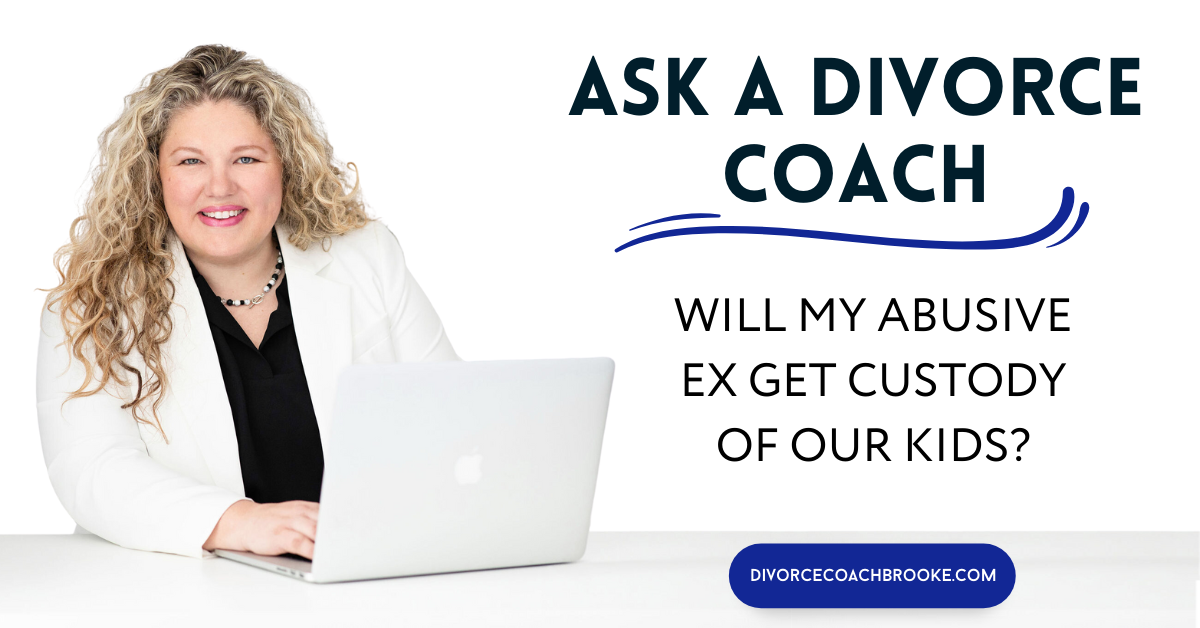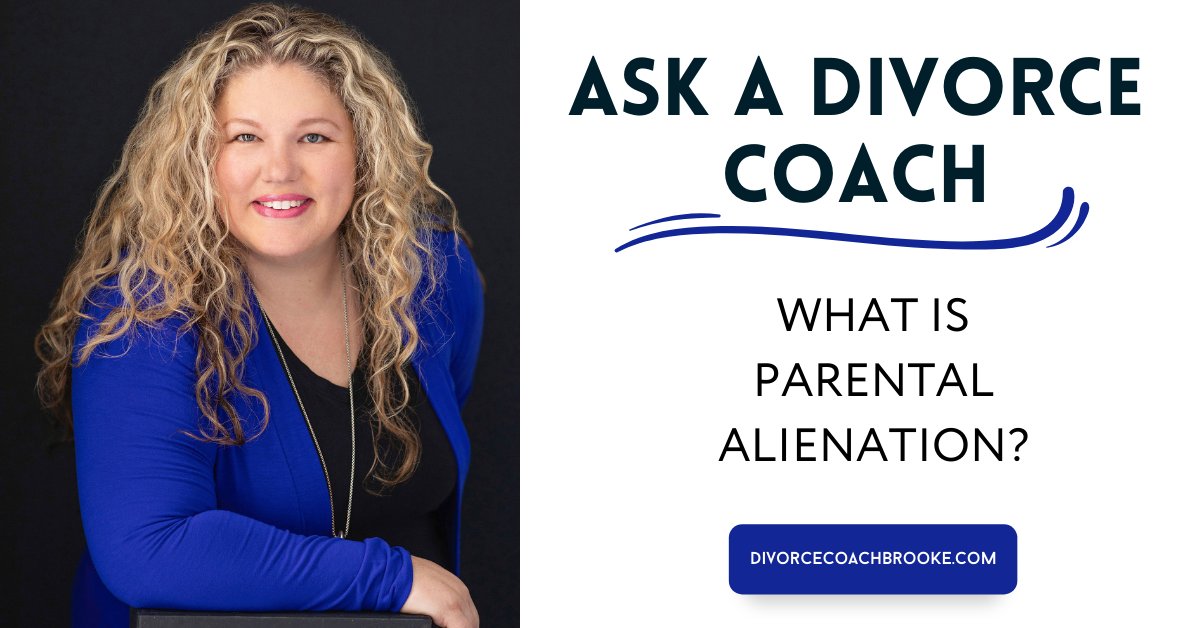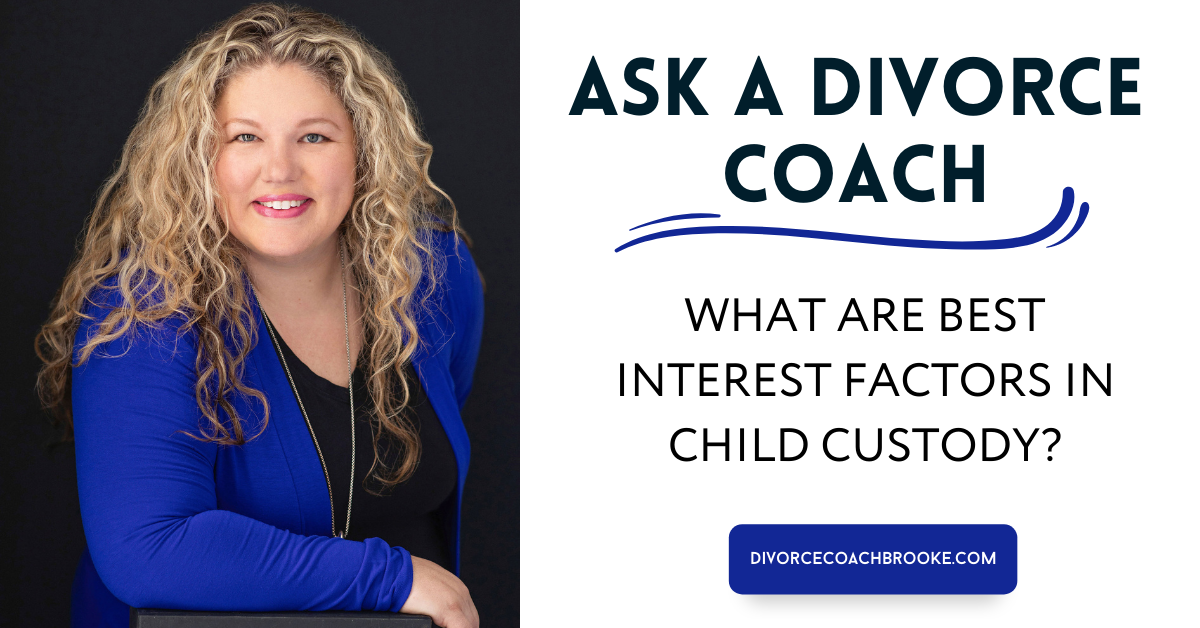- Justified Concerns: In some cases, restrictive gatekeeping may be justified, particularly when it aims to protect the child from potential harm due to the other parent’s abusive or neglectful behavior. However, proving these concerns can be challenging and may lead to further conflict in custody disputes.
- Gender Bias: There is controversy over the term due to perceived gender biases, with some arguing that mothers are more often accused of gatekeeping, sometimes unfairly, as a tactic in custody battles. This can complicate custody disputes and lead to further polarization between parents.

My ex was abusive. He won’t get custody. Right?!
 This has been one of those weeks where the reality of family court slams headfirst into logic and common sense. I’ve had a couple of conversations with mothers who believe that the evidence they have of domestic violence and abuse will be enough to protect their children and ensure they have primary custody.
This has been one of those weeks where the reality of family court slams headfirst into logic and common sense. I’ve had a couple of conversations with mothers who believe that the evidence they have of domestic violence and abuse will be enough to protect their children and ensure they have primary custody.
Those of us who have lived in this system will tell you that is not what we see happen day in and day out (that’s not to say that *some* people aren’t able to protect their children). The Leadership Council on Child Abuse and Interpersonal Violence found that “more than 58,000 children a year are ordered into unsupervised contact with physically or sexually abusive parents following divorce in the United States.”
Reality #1: Domestic Violence is only one factor in determining the best interest of the child in divorce.
And it is not necessarily weighted any higher than the other factors. One of the other considerations is the ability to maintain a relationship with (and even speak highly of) the person who abused – or even threatened to kill – you. As I’ve shared elsewhere, my ex husband threatened to strangle me. And I was still admonished by the court for not liking him. The court seemed to take the approach that my not liking him would cause me to make up the story about the strangulation instead of the more logical explanation that his behavior caused me to have deep fear and discomfort around him.
Reality #2: Parental Alienation has a stronghold on the family law system.
It feels to many of us in the domestic violence system that the courts would rather believe that a mother was making things up than believe the harder truth that a parent would sexually abuse their child. The minute a protective mother goes to the police or the court to get a domestic violence protection order, she is suspect of parental alienation. I will say that again: If you need help leaving a domestic violence situation because your ex might kill you, YOU (the victim) become an immediate suspect in family court.
Reality #3: Gender Bias is real.
Joan Meier at the GW Family Violence Law Center published a study in 2019 entitled “Mapping Gender: Shedding Empirical Light on Family Courts’ Treatment of Cases Involving Abuse and Alienation.” The study analyzed over 4,000 custody cases in the United States to examine how family courts handle cases involving allegations of domestic violence and parental alienation. The study found that gender bias may play a role in how courts handle custody cases. Specifically, when fathers raised allegations of alienation, they were more likely to receive custody than mothers who made similar allegations. Additionally, when mothers raised allegations of abuse, they were more likely to lose custody than fathers who were accused of abuse.
Reality #4: Lawyers.
In my experience, family court lawyers often dismiss domestic violence claims. Many of them believe in parental alienation – in part because it’s an effective strategy for their male clients. One family law attorney I saw with multiple pages of my children’s allegations told me that we really didn’t know what was happening at my ex’s house with the kids because if we did, we wouldn’t be there (trying to fight for custody). This said to me that if the court believed me and my children there was no way they would allow him unsupervised contact. But the courts just didn’t believe me. Thousands of other protective mothers have discovered similar.
Reality #5: There is a presumption that having both parents in a child’s life is in their best interest.
Some states have gone so far as to create a presumptive 50/50 custody statute. Any parent who believes that 50/50 is not in the best interest of a child then has the burden of proof on them to prove why not. This becomes even more challenging because of the laws of evidence. In my case, my ex’s attorney filed a motion requiring strict adherence to the rules of evidence, meaning that any declarations my children made were considered hearsay and inadmissible. The court wouldn’t interview them either, so their voices and stories were ignored, and my concerns were dismissed.
—
This sounds dismal, and in some ways it is. But it’s also not hopeless. There are advocacy efforts underway in many states to change and amend the family law statutes to give domestic violence claims greater weight in custodial decisions by family court judges (including Kayden’s Law). There is a growing body of research about gender bias and abuse claims in the courts. And there are those of use who have lived experience in the courts not only speaking out about it but also helping others who are coming behind. I was ultimately able to protect my children. That alone gives me hope that others can too.
Learn More
What is “parental alienation?”
What is parental alienation?
Parental alienation is a controversial concept that has been used in family courts. To some, parental alienation is a term used to describe a situation in which one parent (or other family member) tries to turn a child against the other parent. This can involve making negative comments about the other parent, telling the child false or misleading information about the other parent, or even preventing the child from having contact with the other parent. Those people often use that term benignly, not understanding the full history of the phrase or the ways that it is used by abusers as a defense. Because of its broad usage, the term has been successfully used to remove children from a protective parent’s custody and given to the abusive parent.
What is the controversy over parental alienation?
Origins of Parental Alienation and Parental Alienation Syndrome
The concept of parental alienation gained significant attention in the 1980s when psychiatrist Dr. Richard Gardner coined the term Parental Alienation Syndrome (PAS). Gardner described PAS as a condition in which a child becomes irrationally aligned with one parent and denigrates the other without justification. He argued that this was often the result of psychological manipulation by one parent, which led to the child’s estrangement from the other parent.
Dr. Gardner, the psychiatrist who introduced the concept of Parental Alienation Syndrome (PAS) in the 1980s, held highly controversial and troubling views on pedophilia, which have been widely criticized. Gardner argued that pedophilia was not as harmful or deviant as commonly believed and suggested that society overreacted to the issue. He claimed that sexual relations between adults and children have existed throughout history and that, in some cases, children may even enjoy such interactions. These beliefs appeared in some of his writings, where he seemed to downplay the severity of child sexual abuse.
Controversy over the use of PAS
However, the introduction of Parental Alienation Syndrome has been highly controversial. One major point of contention is that PAS was never recognized as an official mental health diagnosis by mainstream psychiatric organizations such as the American Psychiatric Association or the World Health Organization. Critics argue that the concept of PAS oversimplifies complex family dynamics and can be misused in court, particularly in cases involving allegations of abuse.
Gardner’s work has faced significant backlash for failing to adequately distinguish between genuine parental alienation and cases where a child’s rejection of a parent is based on legitimate fear or the result of actual abuse. Critics are especially concerned that PAS has been weaponized in family courts to discredit survivors of domestic violence or child abuse, with some abusers accusing the protective parent of alienating the child when, in reality, the child is distancing themselves for self-protection.
Other Terms used instead of Parental Alientation
Refuse/Resist Dynamic: The refuse/resist dynamic in child custody refers to a situation where a child, often during or after a high-conflict divorce, refuses to spend time with or resists having a relationship with one parent. This behavior can stem from various factors, including the child’s own experiences or feelings, abuse inflicted by the rejected parent, or alleged influence from the other parent (sometimes referred to as parental alienation). Many in the parental alienation movement have relabeled behavior under this phrase as legitimate criticism of parental alienation continues.
Gatekeeping: the behaviors of one parent that control or influence the other parent’s access to their child. This can range from positive gatekeeping, where a parent facilitates a healthy relationship between the child and the other parent, to restrictive or negative gatekeeping, where a parent intentionally limits the other’s involvement in the child’s life. Gatekeeping is often used to mean “alienation” because of the negative connotation of Parental Alienation.
False Allegations of Parental Alienation
One of the most challenging situations for a parent is being falsely accused of parental alienation, especially when they have raised credible allegations of domestic violence or child abuse. In some cases, abusers will allege parental alienation as a defense mechanism to discredit the protective parent and shift attention away from their abusive behavior. This can result in a situation where the victim is re-victimized through the court system, a process sometimes referred to as legal abuse.
An accusation of parental alienation by an abusive father, in particular, can be devastating for your case. Despite the controversy and unsubstantiated claims of this theory, it has a stronghold in the family courts, with judges, attorneys, mediators, custody evaluators, GALS and more believing that parental alienation is a valid and widespread problem.
Even if your ex-partner is abusive, the courts will likely expect you to be overly nice and accommodating to that partner when it comes to custody. Any evidence that you do not like your ex can be used to dismiss any and all claims of abuse by you or your children. You must be strategic and understand how your words and actions can be twisted by the abuser. High-conflict divorce coaches are trained in this area and can help you sort out the allegations and create a plan to move forward.
- Document Everything: Maintaining thorough documentation is crucial when defending against false allegations. Keep a detailed record of all communications with your ex-partner, including emails, text messages, and phone calls. Document any missed visitations or instances where your ex-partner has failed to comply with custody arrangements. If your child has expressed fear or discomfort regarding their other parent, record these instances, but avoid coaching or influencing the child’s statements. It is also important to document any evidence of the abuse you have experienced, such as photos, medical records, police reports, or testimony from witnesses.
- Prioritize Your Child’s Well-being: One of the best ways to combat false allegations is to demonstrate that your actions are focused on your child’s best interests. Courts are more likely to side with a parent who appears to be acting in good faith and prioritizing the child’s welfare. Avoid speaking negatively about the other parent in front of your child, even if you believe the accusations against you are unfounded. Instead, focus on maintaining a positive, healthy environment for your child.
- Use Expert Witnesses: In cases where the allegations of abuse and parental alienation are complex, expert testimony can be incredibly valuable. Look for expert witnesses who can help discredit the theory of parental alienation and who can help substantiate the reasons why a child may resist visitation.
The use of the term “parental alienation” is controversial because it has been criticized for being misused and sometimes used to discount or dismiss allegations of abuse made by one parent against the other in the context of child custody disputes.
Critics argue that the term “parental alienation” can be used to blame the victim of abuse, and that it can be misused to suggest that a child’s reluctance to spend time with a parent is due solely to the other parent’s interference, rather than any abusive behavior by the rejected parent.
In some instances, a parent who is accused of sexual abuse may claim that the allegations are the result of the other parent’s attempts to alienate the child from them, rather than actual abuse. This can create a difficult situation in which the court must determine whether the allegations of abuse are true or whether they are the result of a deliberate attempt to alienate the child from the accused parent. The use of parental alienation in such cases can be particularly problematic if there is evidence that the accused parent has a history of abuse or if there is other credible evidence that supports the allegations.
Critics of the concept of parental alienation argue that it can be used as a tool to silence children who report abuse, by claiming that the allegations are a result of manipulation by the other parent. This can create a dangerous situation in which legitimate claims of abuse are not taken seriously or are dismissed as a result of the use of parental alienation.
The American Psychological Association (APA) recognizes the existence of situations in which a child’s resistance or hostility towards one parent is not justified and may result from psychological manipulation by the other parent. However, the APA does not endorse the use of the term “parental alienation” as a diagnostic label or legal concept. Many in the narcissistic abuse recovery and high conflict divorce coaching space refer to this behavior as “post-separation abuse.”
What are the origins of the parental alienation theory?
The concept of parental alienation has a complex history with origins that can be traced back to the early 20th century. However, the modern theory of parental alienation can be traced back to the work of psychiatrist Richard Gardner in the 1980s.
Gardner coined the term “parental alienation syndrome” (PAS) to describe a set of behaviors in which one parent attempts to alienate a child from the other parent during a divorce or child custody dispute. Gardner argued that the behaviors associated with PAS were often the result of a campaign of denigration by one parent, who would try to turn the child against the other parent through tactics such as badmouthing, withholding contact, or making false accusations.
While Gardner’s work gained some traction in the field of family law, it was also heavily criticized by many mental health professionals who argued that the concept was not supported by solid scientific evidence and that it could be used to justify abusive behavior by parents. Additionally, Gardner’s focus on the behavior of the alienating parent rather than the child’s feelings and experiences was criticized by some as being overly simplistic.
What should I do if I am accused of parental alienation?
Safeguarding Your Case From Parental Alienation
Learn More

What are Best Interest Factors in child custody?
When courts determine child custody, they use the best interest of the child standard, which considers several important factors to ensure the child’s overall well-being is prioritized. These factors help guide decisions about where the child should live, how much time they will spend with each parent, and who will be responsible for making key decisions in the child’s life. While each case is unique, the following are some of the most commonly used best interest factors that courts consider when determining custody.
What are the best interest factors?
The best interest factors in child custody vary depending the jurisdiction (or location) where the custody dispute is taking place. Each state has its own set of laws regarding custody, and those can generally be found by googling “best interest factors in child custody in [put your state here].” However, there are several common factors that are generally considered by courts when making custody determinations. These include:
-
The child’s age, gender, and developmental stage
The child’s age, gender, and developmental stage play a key role in determining their needs and the type of care required. For example, an infant may need more frequent interaction with the primary caregiver, while an older child may benefit from maintaining strong ties with both parents. Developmental needs can also influence decisions regarding schooling, healthcare, and emotional support. Courts consider how well each parent understands and can meet the child’s needs based on their developmental stage.
-
The child’s relationship with each parent and other important people in their life, such as siblings, grandparents, and extended family members
Courts assess the child’s relationship with each parent and other key individuals in their life, such as siblings, grandparents, and extended family members. A positive, healthy bond with each parent is crucial, as is maintaining strong connections with siblings and other important people. Judges aim to create a custody arrangement that preserves these important relationships, recognizing the emotional and social support they provide to the child. Courts may also take into account the consistency of these relationships over time and how involved each parent has been in the child’s daily life.
-
Each parent’s ability to provide for the child’s physical, emotional, and educational needs
Each parent’s ability to meet the child’s physical, emotional, and educational needs is central to determining the best custody arrangement. This includes providing essentials like food, shelter, and healthcare, as well as emotional support and guidance. Courts will evaluate how each parent can support the child’s education, whether that means helping with schoolwork, attending parent-teacher meetings, or ensuring the child participates in extracurricular activities. The ability to create a nurturing and secure environment that fosters emotional well-being is crucial in these decisions.
-
Each parent’s mental and physical health
A parent’s mental and physical health can significantly impact their ability to care for the child. Courts assess whether a parent is physically and emotionally capable of meeting the child’s needs. If a parent has a mental or physical health condition that affects their ability to provide consistent care, this could influence the custody arrangement. However, courts are also mindful not to discriminate based solely on a diagnosis; they focus instead on how the condition affects the parent’s ability to parent effectively.
-
The child’s preference, if the child is mature enough to express one
In some cases, courts will consider the child’s preference regarding where they want to live, provided the child is mature enough to express a reasoned opinion. The weight given to the child’s preference depends on their age and emotional maturity. While the court considers the child’s input, it ultimately balances their wishes with other factors to ensure the decision is in the child’s best interest.
-
The ability of each parent to provide a stable and consistent home environment for the child
A stable and consistent home environment is essential for a child’s well-being. Courts look at each parent’s ability to offer stability, including a safe living situation, a routine that supports the child’s development, and consistency in caregiving. Stability is particularly important for younger children, who need a structured environment to thrive. Courts may favor the parent who can maintain a stable household, especially if the other parent’s situation is more transient or unpredictable.
-
Each parent’s willingness to encourage and support the child’s relationship with the other parent
A parent’s willingness to encourage and support the child’s relationship with the other parent is a key factor in custody decisions. Courts prefer to grant custody to a parent who fosters healthy co-parenting and ensures that the child has a strong relationship with both parents. If one parent actively discourages or undermines the child’s relationship with the other parent, this behavior could negatively impact their custody outcome. Courts value cooperation and the ability to prioritize the child’s needs over personal conflict. *See Additional Comments below*
-
Any history of domestic violence, substance abuse, or other issues that could impact the child’s safety and well-being.
Finally, the court will carefully consider any history of domestic violence, substance abuse, or other issues that could impact the child’s safety and well-being. If a parent has a history of abuse, substance addiction, or other dangerous behaviors, the court may limit or supervise their custody or visitation rights to protect the child.
These factors are given different weights depending on the state and circumstances. However, it’s really important to understand the best interest factors before developing a parenting plan. It’s also really important as you look at your ongoing relationship with your ex-partner. Domestic violence is A factor in many jurisdictions. But it is not the only factor. (I would argue as would most of my colleagues that it should be the MOST IMPORTANT factor in custody decisions, but it often is not. Abusive parents get court-ordered, unsupervised custody and visitation every single day.)
* Willingness to encourage and support the child’s relationship with the other parent
The willingness of each parent to support the children’s relationship with the other parent is debated and contested in domestic violence spaces. But it is on the books in many places. What this means is that even if a parent threatened to kill the other parent – even if a parent threatened to kill the child – the other parent is theoretically supposed to encourage and support the child’s relationship with the person they consider dangerous. Not doing so can be labeled as “parental alienation” and can jeopardize a protective parent’s entire case. (There are certainly examples of judges recognizing the danger of domestic violence and protecting kids in these cases. It is very important to talk to your attorney about this, and you should ask specifically how to navigate your concerns while also meeting the willingness to encourage relationship best interest factor.)
The complexity of the best interest factors is one of the reasons why communicating with a disordered ex-partner is such an important strategic part of your post-divorce plan. In my case, the judge decided that I didn’t like X (I didn’t – for good reason), but the fact that she could tell hurt my case for several years. I know better now!
A divorce coach can help you locate resources to better educate yourself on your state’s best interest factors so that you can be strategically-minded during your ongoing custody battle.
Learn More